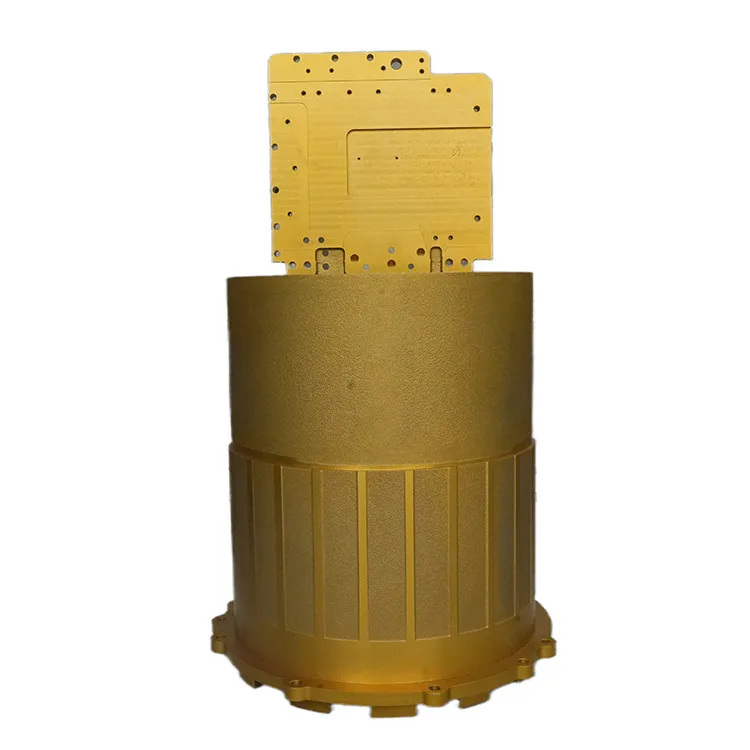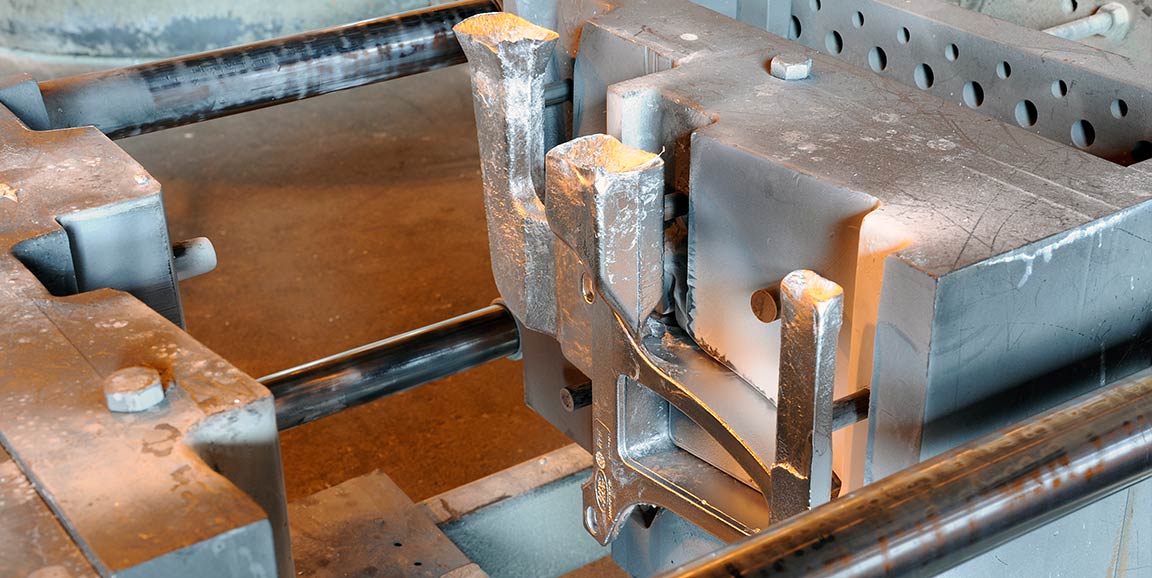What Makes Aluminum Foundry Crucial in the Industrial Industry
Wiki Article
Discover the Advantages of Aluminum Casting in Modern Production
Aluminum casting has actually emerged as an essential procedure in modern manufacturing. Its lightweight yet durable nature offers significant advantages for different industries. The capability to accomplish detailed designs and maintain tight tolerances includes in its allure. aluminum casting. Furthermore, the cost-effectiveness and ecological advantages make it a lasting selection. As producers look for ingenious remedies, the duty of aluminum casting remains to evolve. What specific applications and benefits await exploration in this dynamic field?Lightweight Yet Strong: The Benefits of Aluminum
Although lots of products are made use of in production, aluminum attracts attention as a result of its impressive mix of light-weight properties and remarkable strength. This unique feature makes aluminum a perfect selection for numerous applications, particularly in sectors such as automobile, aerospace, and building and construction. Its reduced thickness enables much easier handling and transportation, adding to minimized power usage throughout manufacturing and setting up procedures.In addition, aluminum's strength-to-weight proportion is excellent, making it possible for producers to create durable parts without adding unnecessary bulk. This characteristic is especially valuable in sectors where weight decrease can bring about improved gas effectiveness and overall performance. Furthermore, aluminum's resistance to corrosion improves the durability of items, even more strengthening its charm in modern-day manufacturing.
Inevitably, the lightweight yet solid nature of aluminum placements it as a favored material, cultivating development and effectiveness throughout multiple markets. Manufacturers progressively identify that these benefits can cause substantial developments in layout and functionality.
Precision and Complexity in Layout
As suppliers accept the capabilities of aluminum casting, they discover new methods for precision and intricacy in design. This production procedure permits the production of elaborate shapes and thorough features that typical methods typically battle to attain. The fluidity of molten aluminum allows it to fill intricate molds, resulting in elements with tight resistances and great surface area coatings.This precision is particularly useful in markets such as aerospace and auto, where specific requirements are essential for performance and safety. Aluminum casting also accommodates innovative designs that enhance functionality without compromising structural stability.

Cost-Effectiveness and Efficiency
Cost-effectiveness and effectiveness are critical factors to consider for producers discovering aluminum casting as a production approach. Aluminum casting offers substantial cost benefits due to its reduced product expenses contrasted to other steels (Precision aluminum casting). The light-weight nature of aluminum lowers shipping and handling expenditures, and its excellent thermal conductivity permits quicker cooling times throughout the casting process, improving overall manufacturing rateAluminum's versatility makes it possible for manufacturers to create complex shapes and styles, lessening the demand for added machining or setting up. This streamlining of manufacturing not just lowers labor prices but also shortens preparations, permitting business to respond promptly to market needs.
In addition, the durability and corrosion resistance of aluminum castings add to longer item life-spans, lowering substitute prices gradually. Consequently, suppliers can attain a balance of premium outcome and reduced functional expenditures, making aluminum casting a significantly appealing option in modern production.
Environmental Sustainability of Aluminum Casting
Aluminum casting sticks out as an aluminum casting environmentally lasting production option, specifically as a result of its recyclability and decreased ecological impact. The process allows for the effective use aluminum, a product that can be recycled indefinitely without shedding its homes. This characteristic considerably decreases the need for virgin aluminum, thereby decreasing and saving natural resources energy usage connected with removal and processing.
Applications Throughout Industries: From Automotive to Aerospace
While varied industries continue to seek innovative products for manufacturing, aluminum casting has actually verified to be a flexible service throughout sectors such as auto and aerospace. In the automotive industry, aluminum spreadings add to lightweight lorry designs, boosting gas effectiveness and performance. Parts like engine blocks, transmission housings, and wheels benefit from aluminum's strength-to-weight proportion.In a similar way, in aerospace, aluminum casting plays a significant role in producing complex components that call for high longevity and reduced weight. Airplane parts such as brackets, landing equipment, and architectural frameworks utilize aluminum for peak performance and safety and security.
The flexibility of aluminum casting enables it to cater to various other markets, including customer electronics, aquatic, and industrial equipment. This adaptability not only fulfills the particular requirements of different applications but additionally supports recurring advancement in manufacturing procedures. Consequently, aluminum casting stays a principal in modern production across many industries.
Regularly Asked Questions
Just How Does Aluminum Casting Compare to Various Other Steel Casting Processes?
Aluminum casting deals superior strength-to-weight proportions, faster cooling rates, and superb corrosion resistance contrasted to other metal casting procedures. These benefits make it optimal for numerous applications, enhancing effectiveness and performance in production.What Are the Common Lead Times for Aluminum Casting Projects?
Regular lead times for aluminum casting jobs vary from 2 to eight weeks, depending upon elements such as intricacy, order dimension, and production capability. Reliable planning can help lessen hold-ups and enhance project timelines.Can Aluminum Casting Be Utilized for Intricate Layouts?
Aluminum casting can indeed fit complex layouts. aluminum casting. Its fluidity permits thorough patterns and forms, making it suitable for complicated parts in numerous industries. This flexibility improves style flexibility while keeping architectural honesty and performanceWhat Post-Processing Options Are Readily Available After Aluminum Casting?
Post-processing options for aluminum casting include machining, polishing, surface treatments, anodizing, and welding. These techniques enhance the finish, improve dimensional accuracy, and increase corrosion resistance, thus enhancing the final item's performance and visual charm.Exactly How Do Temperature Level Modifications Affect Aluminum Casting High Quality?
Temperature adjustments substantially effect aluminum casting quality by impacting fluidness, solidification prices, and potential defects. Fast cooling can result in enhanced brittleness, while too much heat might trigger warping or insufficient filling of molds during casting.Aluminum casting has emerged as a critical process in modern-day production. As makers accept the capabilities of aluminum casting, they uncover brand-new opportunities for precision and complexity in design. Aluminum casting processes generally generate less greenhouse gas discharges compared to various other metal casting methods. While varied sectors continue to look for cutting-edge materials for production, aluminum casting has actually shown to be a functional option across fields such as vehicle and aerospace. In the automobile industry, aluminum spreadings contribute to light-weight car layouts, improving fuel effectiveness and performance.
Report this wiki page